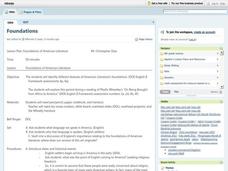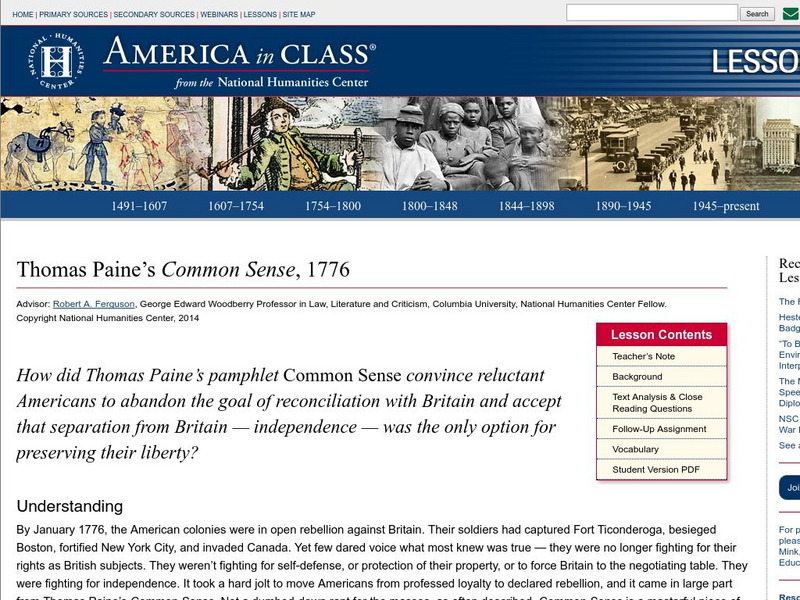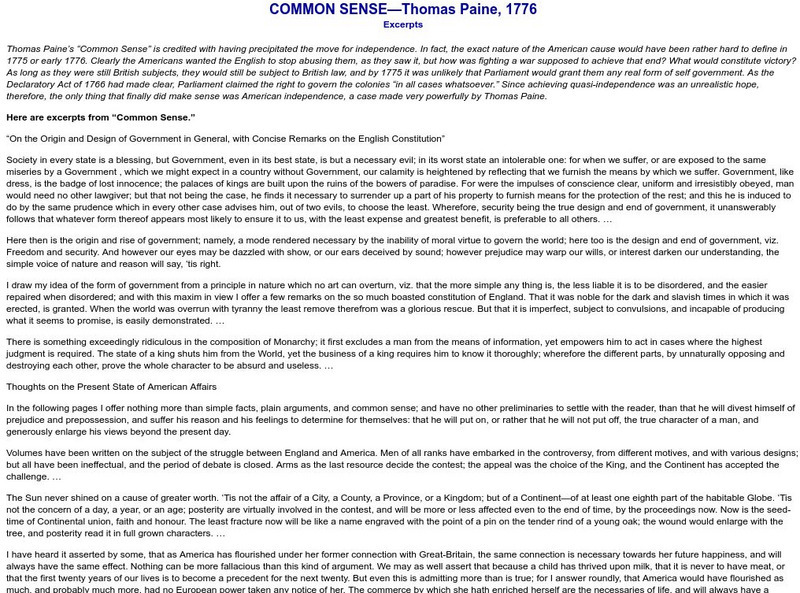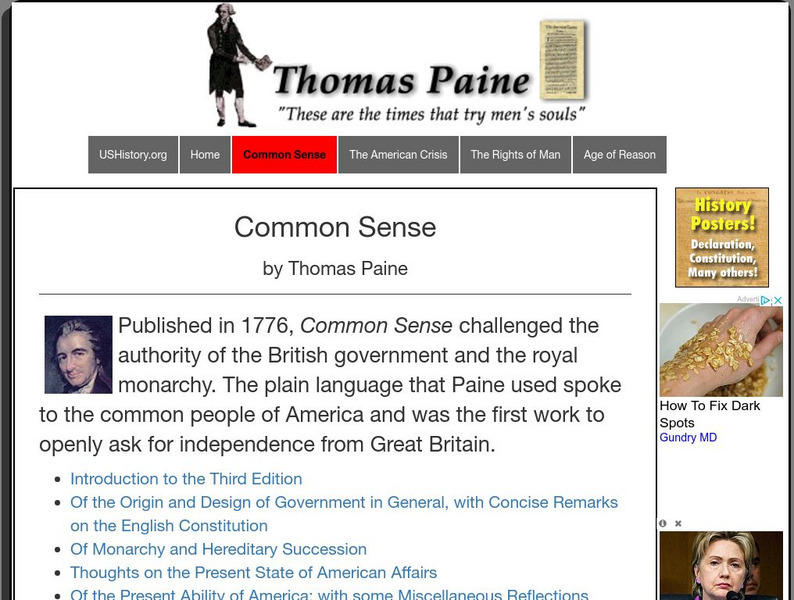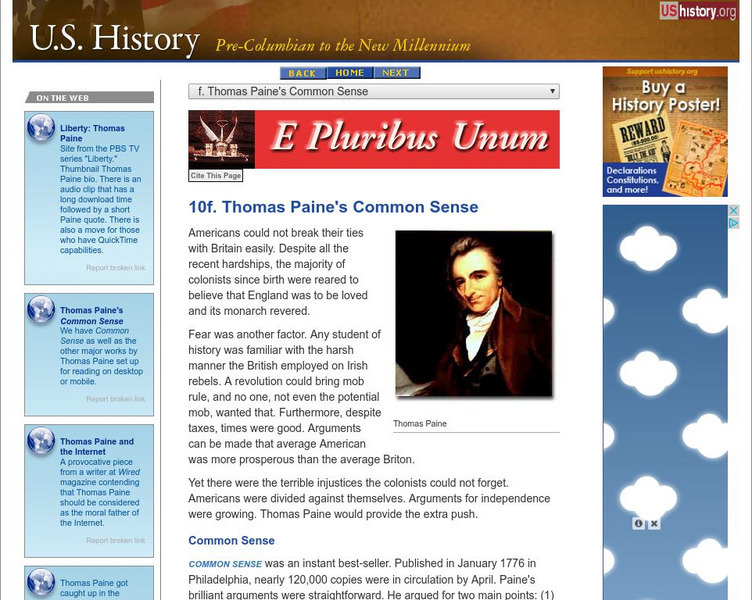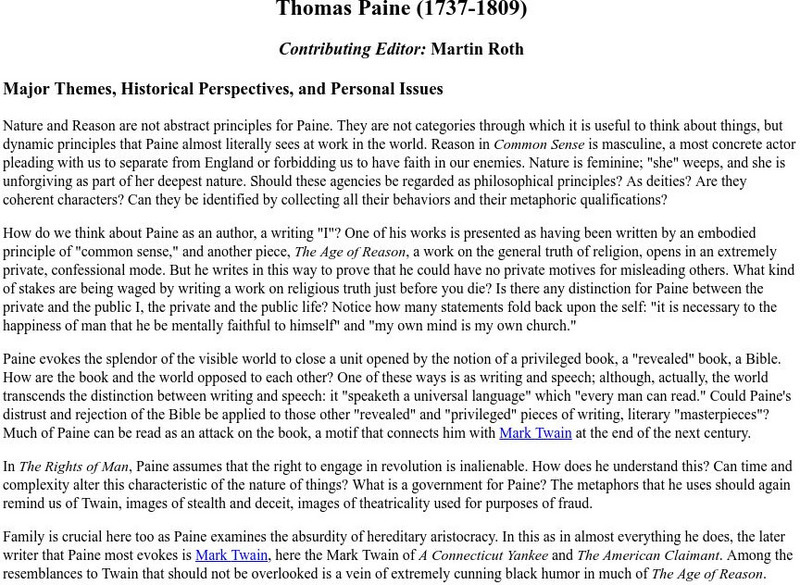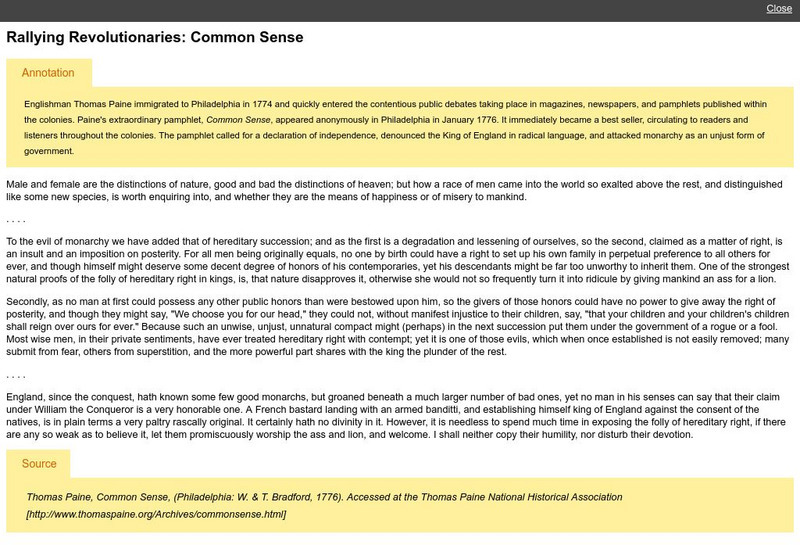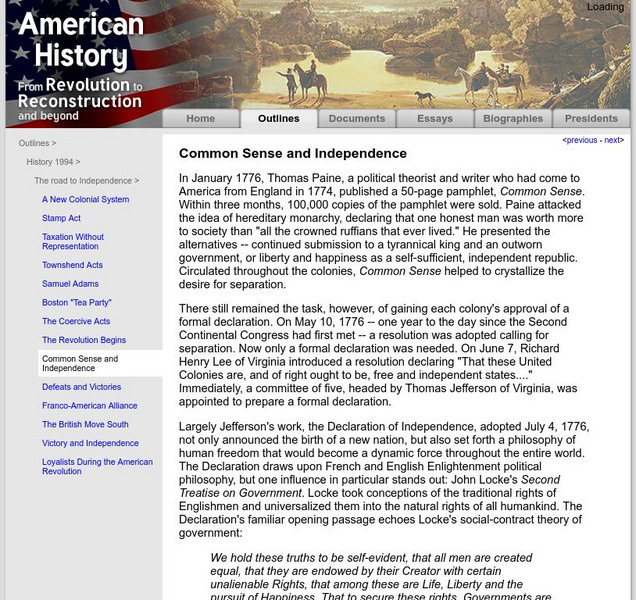New York City Department of Education
Colonial America and The American Revolution
How did the founding of the American colonies lead to a revolution? Use the essential question and sample activities to guide learners through a series of history lessons. Additionally, the packet includes effective strategies to...
Curated OER
How To Do an AHAP DBQ
How is an essay like a hamburger? Detailing the "meaty" parts of a well-written essay, this presentation takes students through the process of using a strong thesis statement to write a thorough and engaging response to a Document Based...
Curated OER
Freethinkers Day
In this Freethinkers Day learning exercise, students complete activities such as reading a passage, phrase matching, fill in the blanks, correct words, multiple choice, spelling, sequencing, scrambled sentences, writing questions,...
Curated OER
My Brother Sam is Dead: A study of the Revolutionary War
Fifth graders complete an analysis of the Revolutionary War through literature. After "My Brother Sam Is Dead," students create a time capsule containing items that would be relevant during the Revolutionary War. They identify key...
Curated OER
Road To Revolution
Students examine events that occurred and explore the differing sentiments between the British and American colonists in the years leading up to the American Revolution. They view and discuss a video on the events then analyze quotes...
Curated OER
Foundations
Students investigate the history of literature in America by looking at the types of genres first read in the United States. They look at the foundations of how the original colonists had the intention of transmitting religious and moral...
Curated OER
Introducing the Essay: Twain, Douglass, and American Non-Fiction
Students analyze American essayists Mark Twain and Frederick Douglass in an introduction to American literary non-fiction writing. For this essay history lesson, students identify methods for writing essays. Students read and analyze...
Curated OER
The Declaration of Independence
For this social studies worksheet, students locate 54 words relating to the Declaration of Independence in a word search. Students may self correct by selecting the link at the bottom of the page.
National Humanities Center
National Humanities Center: America in Class: Thomas Paine's Common Sense, 1776
Lesson on how Thomas Paine's pamphlet Common Sense convinced reluctant Americans to abandon the goal of reconciliation with Britain and accept independence as the only option for preserving their liberty.
Henry J. Sage
Sage American History: Common Sense, Thomas Paine, 1776
Excerpts from Thomas Paine's Common Sense, in which Paine makes a powerful case for American independence.
Independence Hall Association
U.s. History: Common Sense by Thomas Paine
The complete original text of the third edition of Thomas Paine's "Common Sense" published in 1776 in six linked sections.
University of Groningen
American History: Outlines: Common Sense and Independence
Overview of the philosophy of Thomas Paine in his widely read Common Sense pamphlet, and "natural rights" philosphy as expressed in the opening passage of the Declaration of Independence.
Other
Common Sense Complete Text
Text of Thomas Paine's "Common Sense." Click onto introduction for full text or if you are looking for a specific section, then click onto the heading.
Internet History Sourcebooks Project
Fordham University: Modern History Sourcebook: Thomas Paine
The complete original text of Thomas Paine's "Common Sense" originally published in January 1776.
Independence Hall Association
U.s. History: Thomas Paine's Common Sense
Read about the rhetorical touches Thomas Paine employed in his pamphlet, Common Sense, which galvanized colonial thought about actually breaking away from Mother England.
Cengage Learning
Paine/common Sense
This site takes a brief look into Thomas Paine (1737-1809). The site includes Paine's thoughts and beliefs as well as providing an analysis of his writings.
C-SPAN
C Span American Writers: Thomas Paine
Read about Thomas Paine's revolutionary publication "Common Sense" of 1776. Be sure to click on 'featured place' and 'classroom resources' for more facts and information about Paine.
Varsity Tutors
Varsity Tutors: Archiving Early America: A Loyalist Answers Thomas Paine
Loyalist James Chalmers answers Thomas Paine's Common Sense.
Other
The Quotations Page: Common Sense by Thomas Paine
This site provides quotes from Thomas Paine's Common Sense.
Other
Object of History: Rallying Revolutionaries: "Common Sense"
Annotated excerpts from Thomas Paine's "Common Sense" that clearly demonstrate the writer's ability to persuade his American readers to separate from England.
PBS
Pbs Learning Media: Thomas Paine: Writer and Revolutionary
By watching a biographical video and engaging in two primary source activities, students will encounter the ideas, writings, and impact of Thomas Paine.
C-SPAN
American Writers: Thomas Paine
An informational site on Thomas Paine. Includes general information about his life, works, and writings, including Common Sense and The Age of Reason. Also includes links to other sites.
Georgia Department of Education
Ga Virtual Learning:american Literature and Comp: Rationalism:thomas Paine
This lesson focuses on Thomas Paine including his background, writings, and political career. A link to "The Crisis No. 1" by Thomas Paine is provided; students are to read it and underline examples of rhetoric. There is also a quiz over...
University of Groningen
American History: Outlines: Common Sense,independence
Discussion of comparison and contrast of Declaration of Independence and Common Sense. If you click the "documents" link in the sidebar, you can also access the text of Common Sense.
Other popular searches
- Thomas Paine Common Sense
- Common Sense, Thomas Paine
- Thomas Paine, Common Sense
- Common Sense by Thomas Paine







